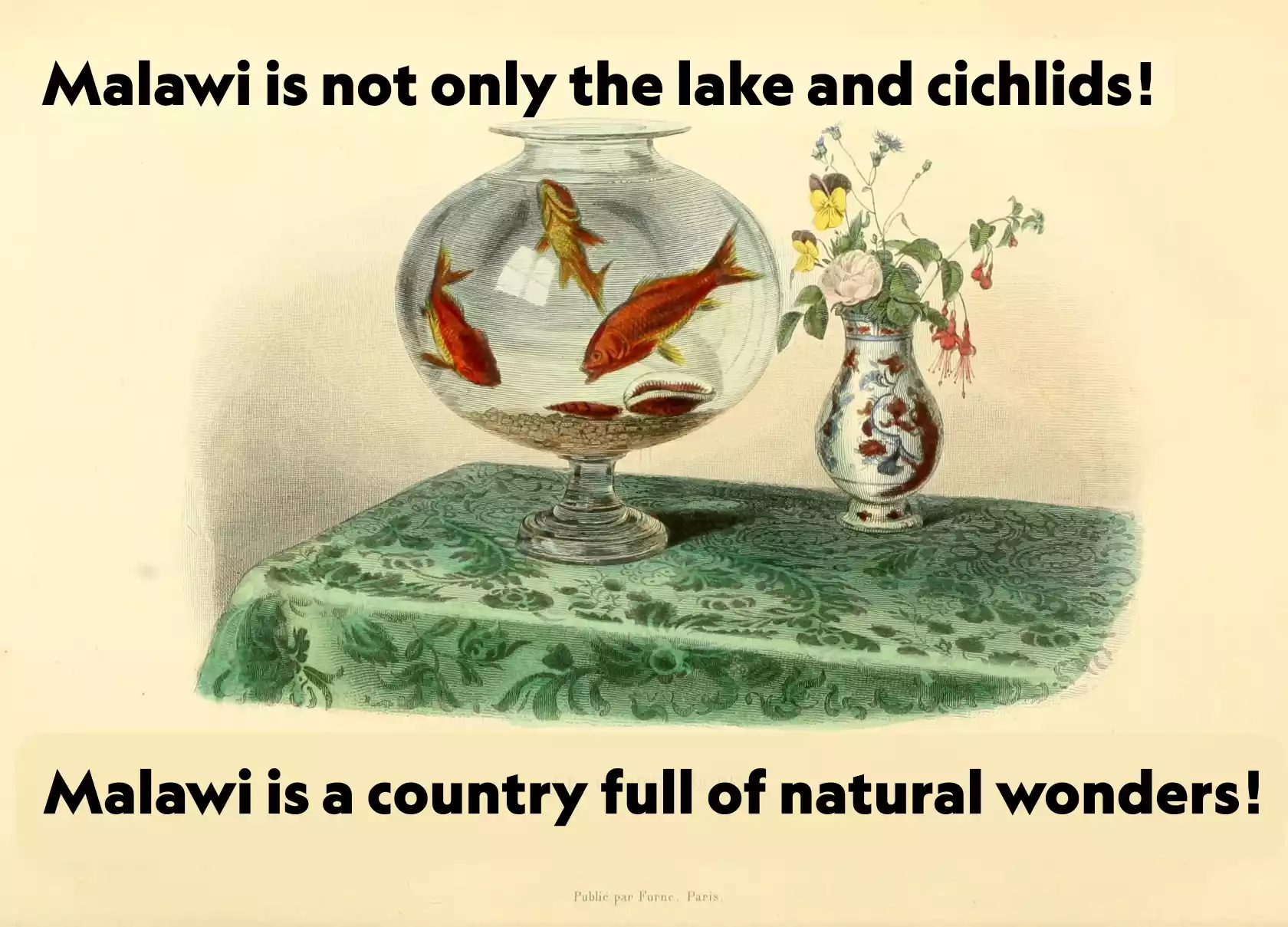Conduct your research in Thailand!
- Details
- News
- Hits: 0

Thailand is a country full of natural wonders and rich culture! However, it is also sometimes considered as a too-way bureaucratic kingdom. That might be true, but at least you can rely on the processes and the truly friendly and helpful approach of Thai people. Therefore, the complex research permit application procedure should not discourage you from your intention to conduct research in this beautiful country.
For any biological research or export permit application, it is highly recommended to have a local collaborator from academia or get in touch with a particular state organization. Although it is not obligatory, it helps a lot in the application processes.
Lately, Sci|Per|Con had the honor to solve the research and collecting permission for the Termite Research Team (TRT) under the leadership of Assoc. Prof. Jan Šobotník. TRT prepared truly nice in situ experiments on organic matter decomposition in the tropical forests aimed at termite contribution. Apart from the research permit application procedure, Sci|Per|Con took care of the project's interim reports, so TRT could entirely focus on the research.
Unluckily, like with many other activities, the experiment of TRT was terminated by the global pandemic. On the other hand, Sci|Per|Con has recent experiences with the process and can provide up-to-date information. If you plan a research project to be conducted in Thailand, don't hesitate to turn to us!
Scientific permits are the new standard!
- Details
- News
- Hits: 0

The scientific community is now lively discussing the topic of scientific permits! The current article in the Science Magazine raised a discussion about review policy in IF journals. The submission or review procedure will imminently include a requirement for scientific permit proof. Although many scientists are already proceeding according to the Nagoya Protocol rules, such a new journal policy would include non-party countries of the Nagoya Protocol, as well.
Read more about the topic at sciencemag.org.
Therefore, scientists working with genetic resources or any other material from abroad should be much more careful in the future.
Luckily, if you are not sure whether you need a scientific permit for your research or if you don’t know how to obtain it, Sci|Per|Con is here for YOU!
Intricacy of scientific permits agenda
- Details
- News
- Hits: 0

Many biologists justifiably state that the Nagoya Protocol and its implementation in many countries absurdly prevent biological research in biodiversity hot-spots. However, there are more points of view that are justifiable as well.
In the first place, Nagoya protocol did not come from the void! There have been many cases where countries claimed complete control over their genetic resources, and irrespectively of scientist's opinions and the countries enforced the claims in their territory (e.g. here and here). We may only hypothesize if these claims were raised to protect natural heritage, stop illegal animal trading, protect the source of scientific research for local scientists, or simply to prevent biodiversity research in order to paralyze conservation efforts (here).
Thus, the main goal of the Nagoya Protocol is actually to prevent these situations. Each party of the protocol (state) should share the information on regulations and make it available and transparent for anybody interested in a collection of any genetic material. However, this effort will still take quite some time, as many of the parties did not implement the law yet. Additionally, other regulations (like CITES) are stepping into the process. It unluckily resulted in a very confusing situation in which SciPerCon can effectively help you.
Moreover, the troubles regarding all needed scientific permits can come from different directions! The first one is, of course, the country in which the research is taking place. The fact you gained a research permit does not imminently mean that you can collect the genetic material. Do you have permission to collect everywhere? Are you obliged to get Prior Informed Consent from the landowner? The export permission is also a separate thing to be solved with proper care!
In case you got successfully back to your home lab without being imprisoned, you can still face the questions of reviewers and editors or the grant provider. EU, for example, started to take true care about the legality of genetic resources for research funded by public finances.
DON'T get upset! The new regulations will not kill science. The scientific efforts will still go on in all the relevant fields. SciPerCon is here to help you with the scientific permits agenda, so you can entirely focus on your research!
Sci|Per|Con - We save time for your research!
Conducting Research in Malawi
- Details
- News
- Hits: 0

Many biologists, mainly Ichthyologists, know lake Malawi for the vast fish diversity that had arisen from the historical water level changes and ragged bottom. Although the state of the same name is highly dependent on fish production, it has much more to offer to both, tourists and biologists.
Together with abroad donors, the Malawian government invested quite some money into the improvement of infrastructure and environment protection, which enable the people to travel across the country faster and offer enjoyment to tourists. The natural reserves and national parks are now inhabited by the "Big FIVE", and the northern regions are easier to visit.
Therefore, we can only recommend conducting any research activities in this beautiful country.
The Malawian National Commission for Science and Technology (NRCT) is the authority allowing any foreign research in Malawi. You have to consider the fact that the board of NRCT is judging the projects once in three months, so you may wait for quite some time.
For the application, you need a detailed project, local (academic) collaborator, MAT with the local institution, and $1.200USD for the application fee. Usually, you will also have to include The Department of National Parks and Wildlife in the projects, which will grant you permission to collect in protected areas. But, you will still need to always visit the management of each NP to agree on the entrance, as the guard will be assigned to you for safety reasons. This precaution unluckily means additional costs, in return, you may save on the entrance and accommodation fees, as they usually charge you as a local inhabitant. Worth mentioning that your local collaborator should also participate in the fieldwork, and the costs depend on your own negotiation.
On the other hand, you can entrust SciPerCon with the scientific permits agenda and negotiation, as our recent successful collaboration with Mzuzu University entitle us to handle your project competently.
Check out the Termite Research Team diaries (part I, part II, part III)! Africa is awesome, and research in Malawi is a true joy!
Sci|Per|Con can mediate you this joy!
Samples from Pakistan? No problem!
- Details
- News
- Hits: 0

Researching in Pakistan may be pretty tuff. The country is large, the geography and climate are incredibly diverse, and the infrastructure is not always in the best shape. But Pakistan is also home to a wide variety of wildlife and culture! The local people are known for their general hospitality and a good level of education. In total, if you are interested in conducting some research in Pakistan, it is definitely a good choice!
Although Pakistan is part of CBD since 1994 and Nagoya protocol since 2016, the regulations are still not fully implemented. Thus, getting information on how to access genetic resources legally is a bit complicated. Moreover, the procedure will surely change soon, as the Nagoya protocol implementation is in the process right now.
Recently, SciPerCon assisted with the scientific permit agenda in Pakistan to the Department of Veterinary Sciences based at the Czech University of Life Sciences Prague. The team of scientists from Prague and the Advanced Parasitology Research Laboratory at the University of Sindh collaborate on domesticated animal parasites research. Some of the material needed to be transported to Prague, and so SciPerCon helped with the permitting process.
Now, we know the process takes less than a month, and the responsible bureaucrats are very helpful. On the other hand, the process will change, so SciPerCon will keep an eye on the valid regulations to have the most current information.
If you plan your research in Pakistan, please, do not hesitate to turn to us with your requests!
